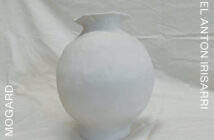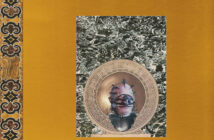
Dystopian dark hop with its roots deep in the fissures of the urban landscape opened by the quaking of predecessors like Mick Harris, the WordSound dub/illbient consortium of New York City, and Italy’s SIMM. And Akatombo has certainly breathed new carbon monoxide into the form. Paul Thomsom Kirk is a Scotsman long resident in Japan and that makes sense, for Tokyo is a kind of point of terminus for all sorts of popular and unpopular culture, where it is seen anew, analysed, retrofitted and usually improved.
From the opening bass wobble and tub thump, the atmosphere is asphixiating and the only breatheable air is superheated and issuing from rusty steam valves. The sampled voices agitated in personal crisis on ‘Kleptokrat’s morph over the course of the album into full-scale cultural panic. It’s a fitting scenario, since the Tokyo of Akatombo´s False Positives isn’t going to be crushed to smithereens by some Godzilla, but is already being eaten up from the inside by bad data, and the rising damp is slowly crumbling its concrete infrastructure. Ultimately, however, Akatombo represents the life that refuses to capitulate, will adapt and thrive. The variation of percussion, whether live or programmed – big-bellied, shallow and tinny, reedy and woven into concave baskets – is his music’s heart and reaches its zenith on the dubbed out rolling thunder of ‘Masked’.
A steady rhythm is the life source of False Positives but the variety of keenly-envisioned electronic textures is its spice. As the entirely beatless ‘Necessary Fiction’ amply proves, Kirk would make an excellent dark ambienteer. Monster surf guitar by long-time spreader of sunshine Makoto Kubota (Sandii & the Sunsetz) on ‘Dominion’ is a welcome ray of light unclouded with toxic dust motes.
Comes with a DVD featuring eight videos (most of which illustrate music not on the CD), fractured collages portraying Tokyo as a gloomier, less-inviting Blade Runner Los Angeles.
Stephen Fruitman



